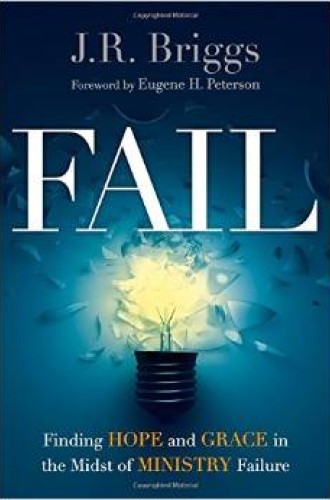Fail, by J. R. Briggs
I’ve wanted to get my hands on J. R. Briggs’s book since the moment I saw it advertised. We pastors are barraged with glossy brochures hustling pricey confabs that promise to increase our ministry, our budget, our reputation, our salary, our happiness, and our good looks. Just pay through the nose to attend the conference and copy the techniques of the handsome folks on the brochure. I’m exaggerating only a little.
The allure is strong because success is beautiful, in a way. More people and more giving means more impact for the kingdom, more influence for the gospel, more more more. But there has always been something odd about a faith with a man on a cross at its heart hustling for more. This book is no salve for mainline laziness criticizing evangelical creativity as one withers and the other grows. Its subjects are zealous, good-hearted pastors of all kinds who do things right and still meet our culture’s most dreaded F-word.
Often in my time as a senior pastor I’ve found myself thinking, So this is what failure feels like. And I’ve not done anything that wrong. I was complaining about my years in Boone to a pastor from across the country who doesn’t know me well. He asked the natural next question, “So how far down is your membership?” I said, well, we’re actually up 15 percent. Why then do I feel like things are an inch from collapsing?





